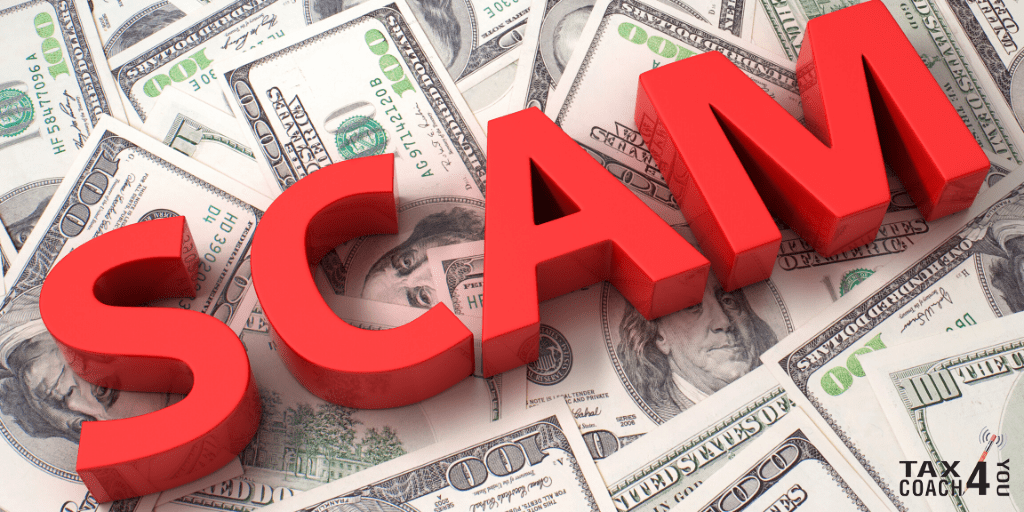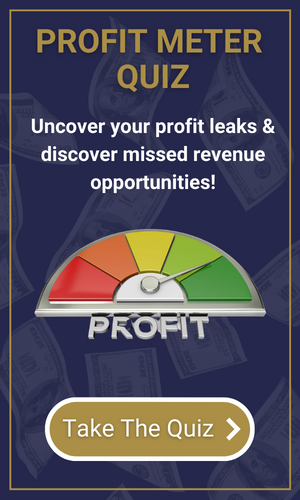The IRS is warning you to be on the lookout for tax scams, including a surge of calls and e-mail phishing attempts related to the Coronavirus pandemic and the one-time economic impact payment.
Since we are focused on helping businesses cut taxes and increase profits (did you know we are a Profit First Certified Master?) we want you to be aware that tax scams can target individuals and businesses.
Tax scams can come in many forms.
The IRS says that scammers may do the following when trying to contact you:
- Emphasize the words stimulus check or stimulus payment. If someone in an official capacity uses these terms your concern level should rise. The official term is economic impact payment.
- Ask you to sign over your economic impact payment check to them.
- Ask by phone, e-mail, text or social media for verification of personal information including your bank account information. The excuse given is that the information is being verified in order to send you your economic impact payment.
- Suggest that you can get a tax refund or economic impact payment faster by working with them on your behalf. This scam could even be conducted in person!
- Mail you a bogus check, then tell you to call a number or verify information online in order to cash it.
What you can do to avoid tax scams:
- Be aware. Awareness is key. If it seems unusual, it probably is. It may be helpful to share this information with your employees too!
- Help the vulnerable. Seniors are often the target of these tax scams. So stay in touch with parents and grandparents as it relates to Coronavirus activity. Tell them to let you know when they receive their payment. Make sure they understand that no personal information is required to receive these payments. It may be helpful to share this information with your employees too! After all – your service business employees should be aware to protect themselves and your business.
- Report suspicious activity. If you receive unsolicited e-mails, text messages or any other type of attempt to gather the information that appears to be from either the IRS or an organization closely linked to the IRS (such as the Electronic Federal Tax Payment System, or EFTPS), you should forward it to phishing@irs.gov.
If you’re looking for even more advice to save your business headaches and money, check out my book “Stop Overpaying Your Taxes“.




